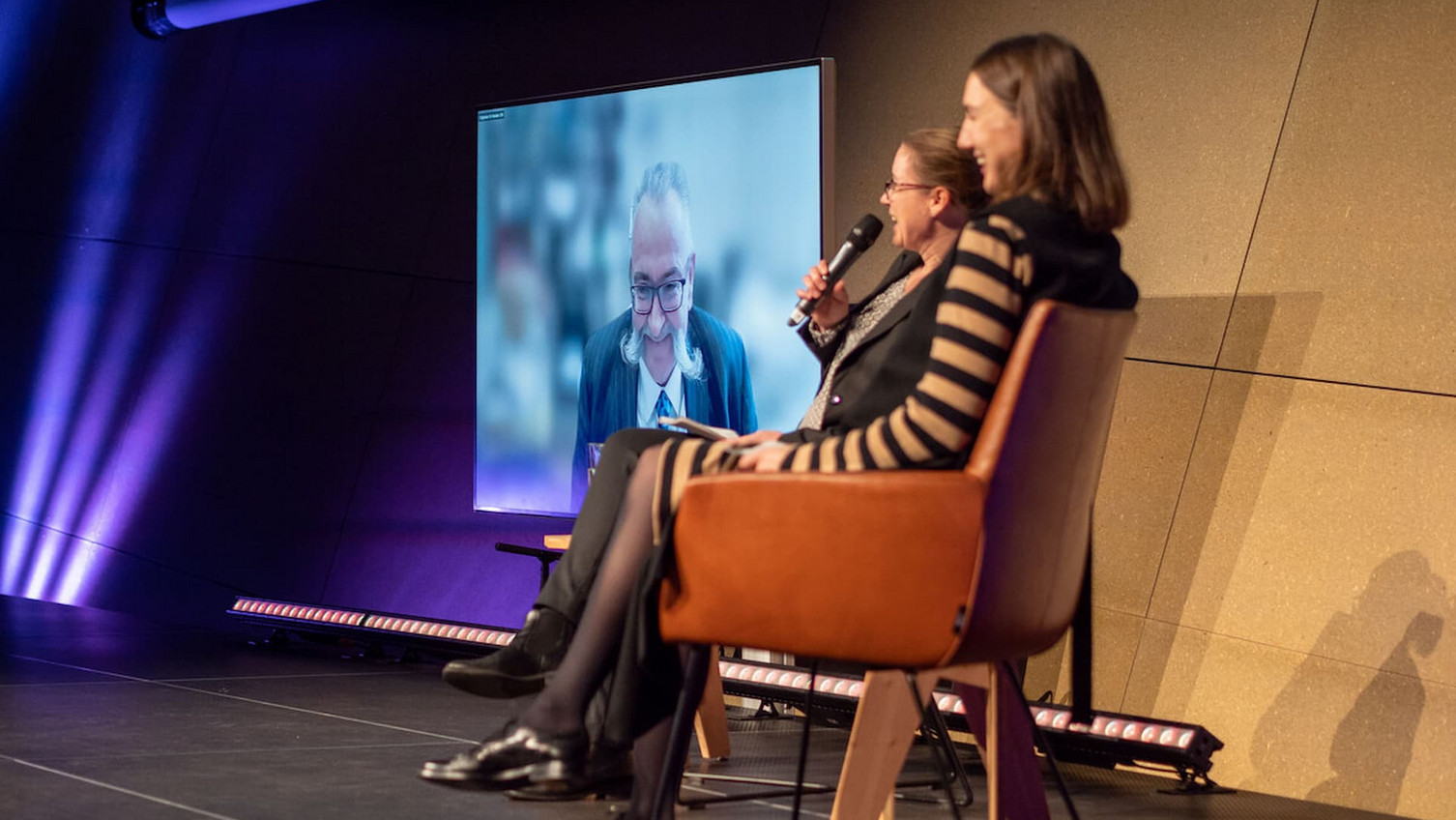Opening Week 2023: Parliament for Nature
2023-10-10 Johannes Vogel, Director General of the Museum for Natural History in Berlin spoke about digital collections, the loss of biodiversity and the Letzte Generation. Dr. Sylvia Haider, Professor of Vegetation Ecology and Biodiversity and Dr. Lynn Rother, Lichtenberg Professor of Provenance Studies led the discussion. Around 1000 first-year students listened in.
"How we will deal with climate change defines how we are going to live on earth. How we deal with biodiversity will define wether we live on the earth", Dr Johannes Vogel pointed out. The Director General of the Museum of Natural History in Berlin was a guest at the opening week with this year's theme "Collecting". Leuphana's unique study model requires all first-semester students to deal intensively with a socially relevant topic at the beginning of their studies.
The collection of the Museum für Natural History in Berlin comprises more than 30 million objects from zoology, palaeontology, geology and mineralogy. In a pilot project, 500,000 insect specimens will initially be digitised. This is intended to make the collection accessible worldwide. "We need to continue collecting because we know too little. But we need to do it in a modern digital way," Johannes Vogel explained. The algorithms are now so efficient that they can even distinguish between intra-species characteristics - similar to how we humans distinguish between each other. DNA analyses, which can also be used to determine species, are too slow and too expensive.
However, digitalisation would by no means make museums superfluous: Physical objects are still necessary for research. Johannes Vogel showed examples of falcon eggs with wafer-thin shells. The British scientist Derek Ratcliffe was the first to discover the connection between the use of pesticides such as DDT and the decline of British bird of prey populations, especially the peregrine falcon, in the 1960s. The large birds could no longer hatch their eggs. The shells had become too thin due to the DDT.
Johannes Vogel, however, also emphasised the political dimension of a museum: last autumn, two climate activists of the Letzte Generation had glued themselves to the support bars of a dinosaur skeleton. The museum director condemned the action and filed charges for damage to property, but: "We should talk about the subject and not about the grief of a museum director." Johannes Vogel therefore invited people to the museum for a discussion. A small TV studio was set up right next to the dinosaur skeletons and the activists spoke together with representatives of the police, politics, medicine and crafts, among others: "We tranformed the museum into a parliament for nature.
Knowledge-based dialogue is in the foreground for Johannes Vogel. After the discussion, a small exhibition was set up, which can still be visited today. This includes the superglue on the holding bars, which has been preserved as a testimony to the times. "We are not the biggest natural history museum, but we are by far the most political natural history museum I know. Politically in the sense that we are willing to allow debate on nature and democracy."

